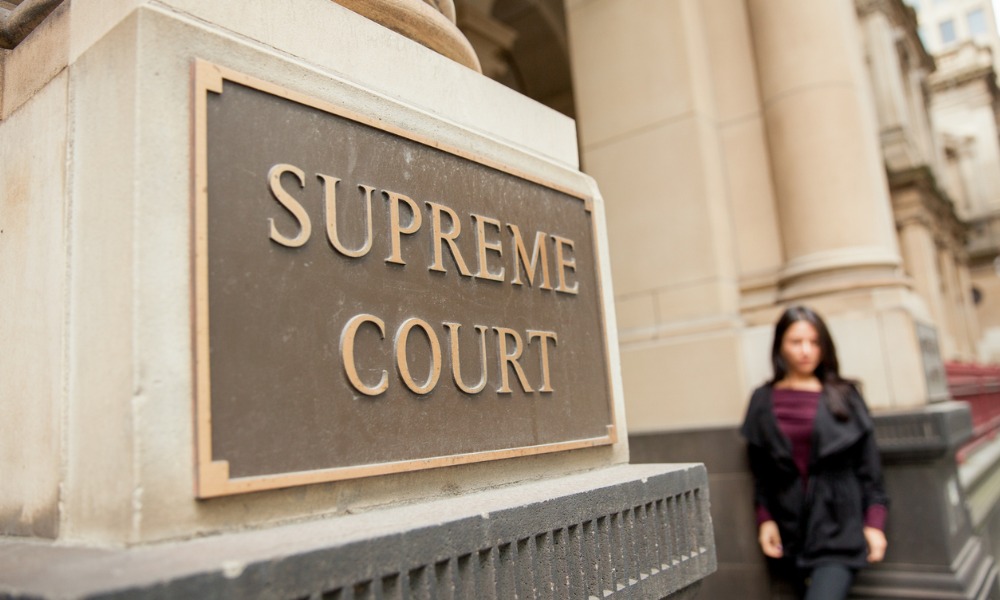The law, declared unconstitutional years ago, would ban abortion after six weeks of pregnancy

Six justices of the Supreme Court of Iowa, USA have been presented with the opportunity to revive a law which would ban access to abortion after six weeks of pregnancy. Three of these justices have declined to do so. The same three justices are now being called upon by the leader of a conservative Christian group to “resign, be impeached or be ousted”.
In Planned Parenthood of the Heartland, Inc vs. Kim Reynolds, case no. 21-0856, the Iowa Supreme Court was asked to revive a law declared unconstitutional by the district court in 2018. The law was known as the “foetal heartbeat bill”, and would prohibit most abortions at about six weeks of pregnancy – or “before many women even know they are pregnant,” Iowa Supreme Court Justice Thomas Waterman pointed out.
Iowa law currently allows abortions within the first twenty weeks of pregnancy.
Read more: Companies that pay for abortion travel expenses met with mixed responses
The court, speaking through Waterman, found the case “extraordinary”, as it involved the “polarising” topic of abortion as well as an “unprecedented” effort to revive a statute declared unconstitutional by a final judgment four years ago. The state of Iowa specifically asked the supreme court to “change the law”, adopt the rational basis standard for reviewing the constitutionality of a statute instead of the undue burden standard used in 2018, and dissolve the injunction placed years earlier against the foetal heartbeat bill.
The undue burden standard of review allowed the court to strike down laws found to be too burdensome or restrictive of any of a person’s fundamental rights, e.g. the right of a person with a non-viable foetus to seek an abortion.
“In our view, it is legislating from the bench to take a statute that was moribund when it was enacted and has been enjoined for four years and then to put it into effect,” the court said in its decision.
With two justices of the Iowa Supreme Court’s seven joining Waterman in this view, another three dissenting, and one conflicted out from the case, the court found itself evenly split three against three, and the foetal heartbeat bill remained unconstitutional as judged by the lower court by operation of law.
A day after the decision was published, the head of conservative Christian group Family Leader tweeted that the three justices who voted against reviving the abortion ban should resign, be impeached or be ousted.
In 2010, Iowans ousted three Iowa Supreme Court Justices for disregarding the separation of powers. These three dissenters have shown blatant disrespect for the constitution, the people’s representatives and we the people. They should resign, be impeached or be ousted. https://t.co/uD4yUITxqP
— Bob Vander Plaats (@bobvanderplaats) June 17, 2023
Still, all six members of the Iowa Supreme Court participating in the decision agreed on a threshold jurisdictional matter – that there was no direct right to appeal the denial of a motion to dissolve an injunction that was entered four years ago, and that the only possible way for the court to review the lower court’s injunction was by the discretionary writ of certiorari.
“We believe the State cannot prevail for two reasons: first, there are numerous discretionary reasons not to grant the writ; second, even if we granted the writ, the district court acted neither illegally nor outside its jurisdiction when it concluded the injunction remains valid under existing law,” the court said.
The court added that it was not obligated to write an opinion when its members were evenly split, as in such cases the opinion would be merely advisory. But since the three justices who preferred to reverse the lower court and reinstate the foetal heartbeat law insisted on writing an opinion, Waterman said he and his concurring justices, Iowa Chief Justice Susan Christensen and Justice Edward Mansfield, decided to write one as well “to provide balance”.
Waterman said that the correct solution in this case, rather than the court overturning an unappealed judgment that had lapsed into law four years ago, was for the state legislature to enact a new foetal heartbeat law. In that circumstance, “the unprecedented jurisdictional and procedural issues presented in this case fall away”.
“In future cases involving new abortion laws, the parties are free to argue for a change in the current undue burden standard, and this court will consider it,” Waterman’s opinion read before highlighting one more point:
“It would be ironic and troubling for our court to become the first state supreme court in the nation to hold that trash set out in a garbage can for collection is entitled to more constitutional protection than a woman’s interest in autonomy and dominion over her own body.” Waterman, Christensen, and Mansfield found this idea “untenable”.
Writing the opposite opinion, Justice Christopher McDonald argued that the lower court should have used rational basis review in judging the foetal heartbeat law, since controlling precedent existed that allowed its use instead in place of the undue burden test, ABA Journal reported.
“It is almost universally accepted (except by my colleagues today) that courts have inherent authority to modify or dissolve a permanent injunction based on changes in fact or law without regard to the passage of time,” McDonald said.










